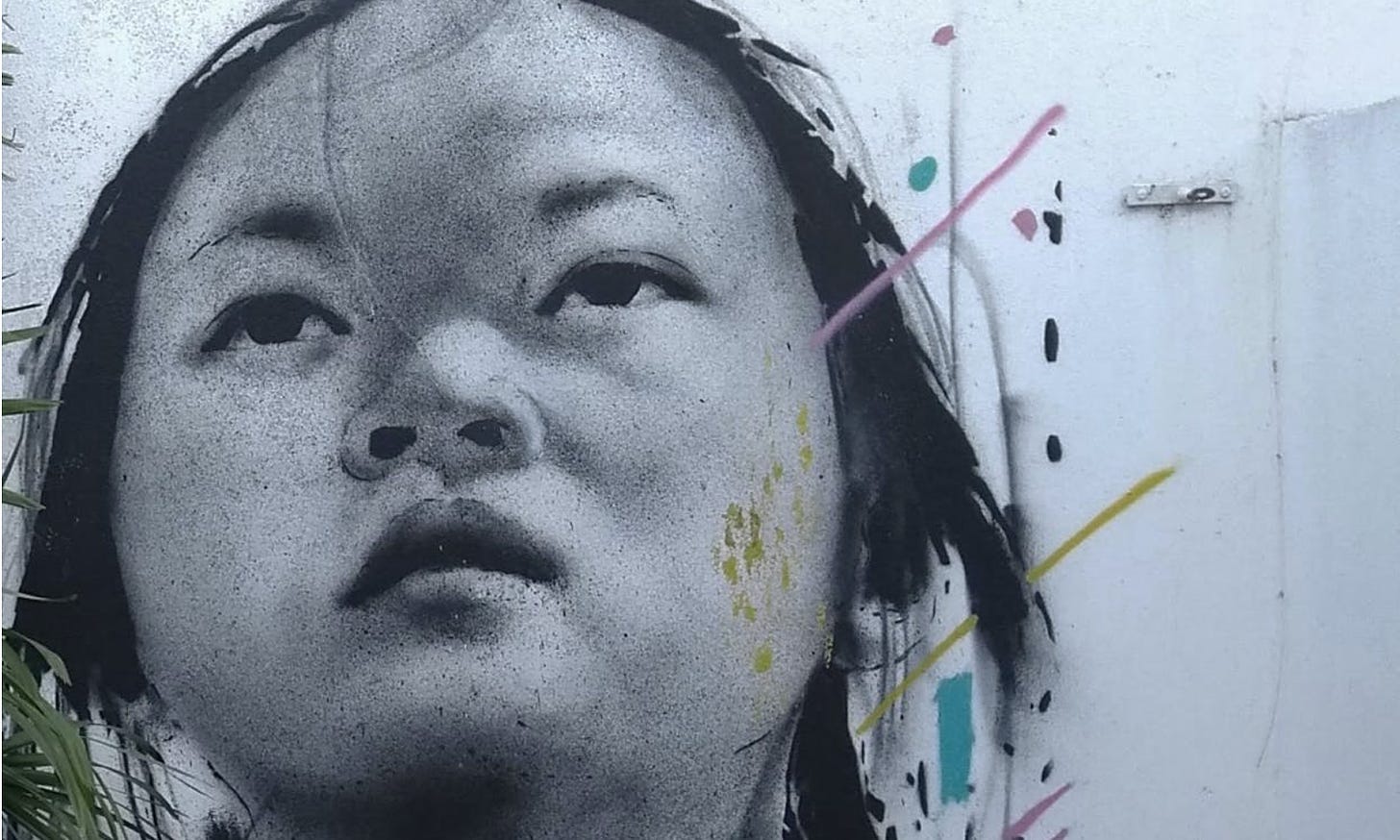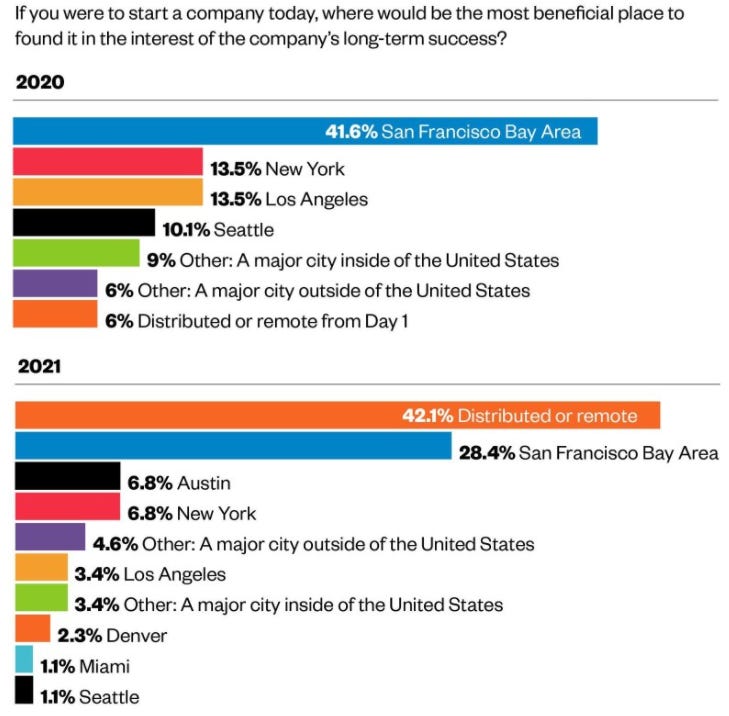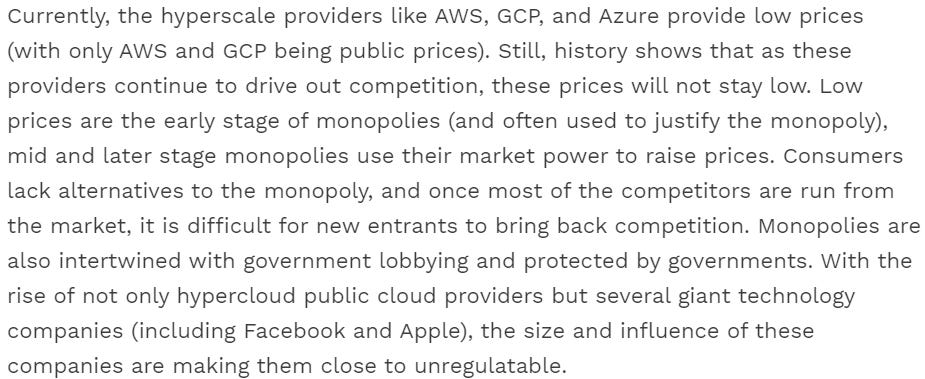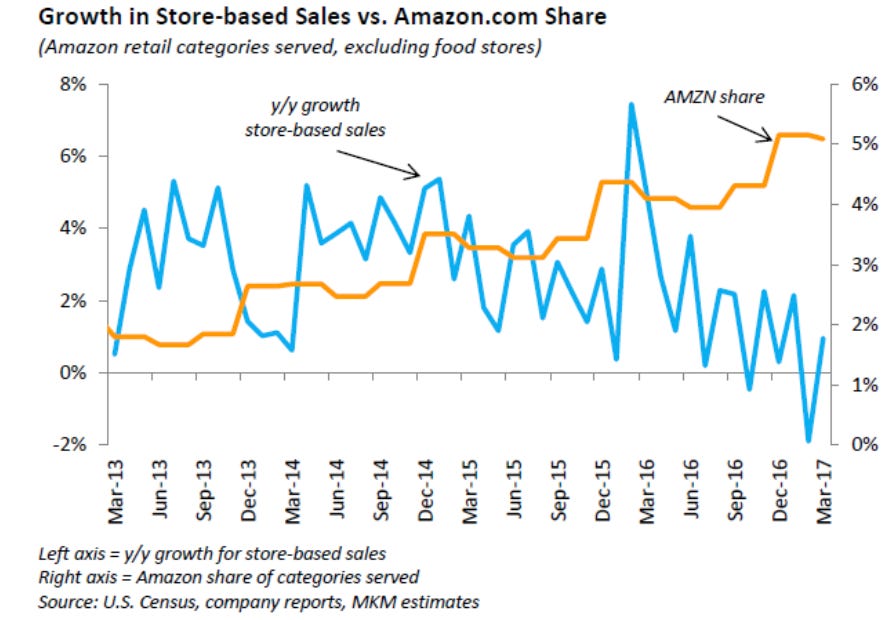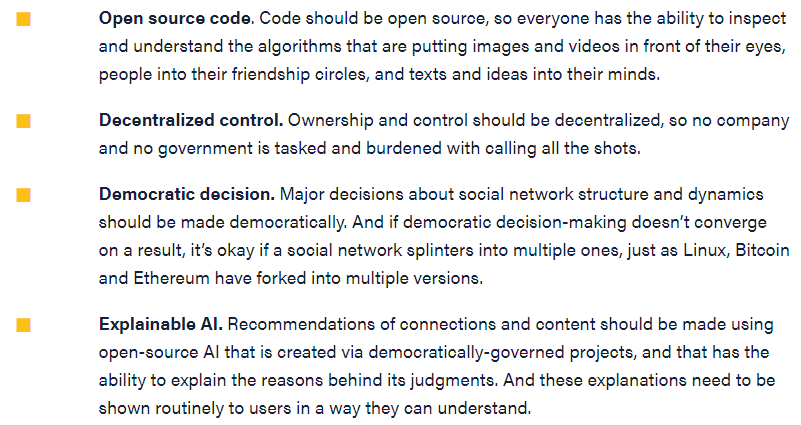Insightful newsletter of Drishtikone: Issue #231 - The Power Manthan
Last few years have seen centralization of data. Also perfecting of completely decentralized blockchain tech. The future will see the later challenge the former. This Manthan will churn new winners.
Photo by Pablo Malafaia from Pexels
“It was always the becoming he dreamed of, never the being.” ― F. Scott Fitzgerald, This Side of Paradise
The big boys of the corporate world have worked hard for centralizing power. Or rather data. Which is now a proxy for power.
However, the world may be shifting. Blockchain is now a perfected and proven technology. Many companies are now using it to create not just social networks but also cloud storage. If those experiments succeed, we may see new winners.
There are serious moves being made around the world and even in India unbeknownst to us. Will the new direction of thinking and experiments succeed?
It will decide the future of the next set of super-powers in the world.
fundamental shift and the future innovation
Pandemic has brought new challenges and new opportunities. There has been a push towards a more decentralized workspace in the corporate world. Working in the office may become outdated.
Unilever’s Alan Jope, Chief executive of the consumer goods groups said something very interesting with respect to the world’s largest FMCG company’s future work strategy.
“We anticipate never going back to five days a week in the office,” Jope said. “That seems very old-fashioned now.” He also said the pandemic had made it clear that the company did not need to be as hierarchical. (Source)
Bay Area, which was the main hub of innovative companies has been seeing a significant fall in business.
The meme right now is that the pandemic has finally kicked the Bay Area off its pedestal. Rents are down 24 percent year-over-year, according to Zumper. Local sales tax collections are also down by more than 40 percent. But the reality for us and our portfolio is that the Bay Area’s share of companies in our portfolio has been declining for seven years. (Source)
Are companies moving out? Where will they move? Initialized is a large and successful Venture Capital firm with successes like Instacart, Opendoor, Reddit, etc. (Source) They do an annual survey on the geographic composition of company HQs across different funds they manage. They usually get around 90 respondents sending their answers.
The difference between 2020 and 2021 in terms of the most beneficial place to found a business for the long-term success of the business is instructive.
Bay Area or rather Silicon Valley is the #2 location.
#1 location to start a business for the long-term success of a new business is not a city or place.
It is the cloud.
So, the important question - is Cloud the new Silicon Valley of the future?
If it is - as it seems to be - then who owns those hubs?
The big three - Amazon AWS, Google GCP, and Microsoft Azure.
Their monopoly over the global cloud will have significant consequences.
More and more applications are moving out of the local on-premise data centers and moving to the cloud.
According to Research & Innovation Estimates, the cloud computing will “replace 14.5% of global on-premise spending in 2020“(Columbus, 2017). Forbes magazine on the other hand estimates (Figure 1) that Cloud computing will grow from $67B to $162B between 2015 and 2020 “attaining a compound annual growth rate (CAGR) of 19%” (Forbes.com, 2017). (Source)
In terms of actual physical businesses - the brick-and-mortar - the shift is even more alarming.
That is why some people are talking about moving to a more decentralized model of cloud. Using Blockchain model.
Is that possible?
Possible, though still unproven.
Cloud computing offerings traditionally originate from a handful of large and well established providers, which monopolize the market, preventing small players and individuals from having a share. As a result, the few, blindly and perforce trusted entities define the prices and manage to gain a significant competitive advantage by exploiting the knowledge derived by users’ data and computations. To tackle this monopoly and empower the democratization and full decentralization of the cloud computing market, we present CloudAgora, a platform that enables any potential resource provider, ranging from individuals to large companies, to monetize idle resources competing on equal terms, and allows any cloud consumer to enjoy access to low-cost storage and computation without having to trust any central authority. The key enabler of the platform is Blockchain technology, which is used to record commitment policies through the use of smart contracts, publicly verify off-chain services, both storage and computation related, and trigger automatic micropayments. (Source)
Decentralization of networks and cloud is the way forward.
Together, the trio of open source, blockchain, and decentralization is creating a pathway to decentralized cloud storage platforms that are much more performant, cost-effective, and secure than their centralized counterparts. Decentralized cloud storage also removes single points of failure, democratizes trust, improves accountability, and pushes data to the edge, closer to where it is utilized. (Source) Check out the full presentation here - Source
But the entrenched players do not take the movement or activism towards decentralization that kindly.
For example, Lincoln Cannon is an entrepreneur who shared a similar message about using decentralization technologies to create future social networks.


He was immediately suspended by Facebook. (Source)
The article he shared had the following set of principles on which the future “better” social networks should be built.
The Facebook algorithms probably tagged Cannon as an influencer and connector and threw him out of Facebook.
The message is clear. As long as people are talking about such technologies and frameworks as mere entertainment, it is ok. For, many others have shared the same article on Facebook. But as soon as it starts to become a serious movement, there will be a backlash.
What is in it for India?
Leadership. If done right.
The new world - if done right - can change the entire economies and power structures on their heads.
There was a time when India’s Non-Aligned Movement leadership was really a sign of its diplomatic pusillanimity. India’s political leadership and diplomatic establishment were just too chicken to chart out a strong way to work with either camp and even when India aligned with one - Soviets - it feigned as if it was neutral.
The new world will present a completely different scenario.
Decentralized world.
That can be a source of strength though. Leadership in that world may change things.
Why is that statement so significant?
Because India’s Unified Payments Interface (UPI) is already the most successful challenger to the payment rails in the world of financial technology.
India had banned cryptocurrency transactions in 2018. A decision, that was rather short-sightedly overturned by the honorable Supreme court in March 2020.
Meanwhile, India was preparing to get its own cryptocurrency in place.
The National Payments Corporation of India (NPCI) has announced plans for a blockchain payments solution. The organization has 56 shareholder banks and was initially set up with support from the Reserve Bank of India and Indian Banks Association. Will the blockchain system be used for domestic purposes or remittances and does this impact Facebook’s India remittance plans? According to Business Today, the organization issued a notification saying: “NPCI intends to develop a resilient, real-time and highly scalable blockchain solution. It is proposed to develop this solution using an open-source technology/ framework/solution.” (Source)
There is a movement on the financial side towards a giant leap into the future tech power structure. It is important. The best part is that now - after making the UPI payment rails mechanism a success in India - the NPCI is now moving outside India. To export the framework - so the influence can grow and that of Visa/Mastercard can reduce. (Source)
What is needed now for the future of Indian jobs, start-ups, and national security - is a cloud infrastructure. Just like the UPI was a brilliant and elegant solution to the long standing issues that the financial industry was facing (Issue #215 - The UPI/RuPay Juggernaut), the industry needs a fundamental component using the blockchain technology that is indigenous.
In the future, Silicon Valley will not be a place on the map. But a framework on the cloud. Someone’s cloud. The one who owns the cloud will own innovation.
who is paying for the standup comedy industry?
The Indore bench of the Madhya Pradesh High court reserved the order on the standup Munawar Faruqui’s bail application. He was arrested for his bigoted anti-Hindu content. Something that he uses repeatedly. The judge made some scathing remarks.
The judge asked, “But why you take undue advantage of other’s religious sentiments and emotions. What is wrong with your mindset? How can you do this for the purpose of your business?” Senior Advocate Vivek Tankha argued on behalf of Munawar Faruqui, “He has committed no offence in the matter your lordships. Bail should be granted”. (Source)
Guess who was representing Faruqui in Madhya Pradesh? Vivek Tankha!
Have you ever tried to get the services of a lawyer as senior as Vivek Tankha? And then try and get him to represent you in Madhya Pradesh High Court! Good luck with that!
If you are able to somehow make that happen, do you know how much the Senior Advocates like Vivek Tankha charge for one appearance?
At least INR 5-10 lac! (Source) The question to ponder is - who is footing the bill for defending a stand-up comic. By different accounts, stand-ups in India make roughly INR 5-20k for a 25-30 minutes show. (Source)
Does that add up for you?
The question should be - who is backing Munawar Faruqui? He couldn’t be doing what he is doing if he didn’t know that someone big, powerful, and rich has his back. As the case shows someone does have his back.
You see the whole politico-religious “comedy” industry has a framework. Behind their paychecks and the financing of their gigs, there are paymasters. Paymasters who are aligned with selling certain ideologies and bigotry at any cost. Those who are paying Tankha are not paying for Faruqui, they are paying for the battles for supremacy of their ideologies. That actually is a deeper game.
“There’s a political comedy industry now,” said Mike Still, former artistic director of Los Angeles’s Improvisational and Sketch Comedy Training Center and theater, the Upright Citizen’s Brigade, “[and] industry means that it needs to be bought.” (Source)
Industry means that it needs to be bought.
One is not saying that Modi’s political opponents or anti-Hindu bigots are coming with bags full of cash for Faruqui, Kamra, or Khatri, but there is an industry that is overwhelmingly churning out abusive, one-sided, and profane performances – in word, speech, and hashtags – and bottling it as humor.
Such a spectacularly prejudiced and politically weaponized industry cannot be an organic happening.
It is a creation.
And such a creation – this industry – has questionable financing at its base.
market corner: 10 quick bytes
Indian economy estimated to contract by 9.6 percent in 2020: UN report - more
Google workers in 10 countries form an international union alliance called 'Alpha Global' - more
FinMin releases weekly installment of Rs 6,000 cr to states to meet GST shortfall - more
American whiskey segment growing faster than other premium whiskeys in India - more
Confederation of All India Traders (CAIT) alleges Amazon, Flipkart, Zomato, and Swiggy of flouting rules - more
Transport ministry okays green tax on vehicles over 8 years old - more
TCS once again becomes the most valued domestic firm by market capitalization - more
Cabinet to clear sale of Rashtriya Ispat Nigam (RINL) soon - more
Auto MSMEs cornered 91% of loans amid Covid; NPA share declined across borrower segments - more
Samsung India closes up on Maruti Suzuki with net sales of Rs 75,461cr in FY20 - more
nota bene
China-India Clash: Indian and Chinese troops physically clashed once again in the high-altitude area of Naku La in north Sikkim last week, with several soldiers being injured on both sides after Indian troops repelled an attempt by Chinese troops to enter Indian territory. The Chinese actions served as a grim reminder of the assertiveness shown by the People’s Liberation Army all along the Line of Actual Control even as the Indian Army remains in a state of high alertness to respond to aggressive actions. (Source)
Currency Fake News: Amid reports that the Reserve Bank of India (RBI) is planning to withdraw the old series of currency notes including Rs 100, Rs 10, and Rs 5 by March or April, the RBI has said that this is fake news and the Central Bank has no plan to withdraw these notes. (Source)
Xi warns West: Chinese President Xi Jinping warned global leaders at an all-virtual Davos forum Monday against starting a "new Cold War", and urged global unity in the face of the coronavirus pandemic. "To build small cliques or start a new Cold War, to reject, threaten or intimidate others... will only push the world into division," said Xi in a likely veiled attack on US President Joe Biden's plans to revitalize global alliances to counter China's growing influence. (Source)
China beats US as #1 FDI destination: China overtook the U.S. as the world’s top destination for new foreign direct investment last year, as the Covid-19 pandemic amplifies an eastward shift in the center of gravity of the global economy. New investments by overseas businesses into the U.S., which for decades held the No. 1 spot, fell 49% in 2020, according to U.N. figures released Sunday, as the country struggled to curb the spread of the new coronavirus and economic output slumped. (Source)
Facebook deletes Netanyahu’s post: Facebook Sunday deleted a post by Prime Minister Benjamin Netanyahu and suspended a chatbot operated by his official account for a week for violating the social media network’s privacy policy. The chatbot has been sending private messages to followers, asking them to provide personal details of people over the age of 60 who have not yet been vaccinated against the coronavirus, adding that the premier will then persuade them to get the inoculation. (Source)
video corner: the new breed of Indian youth
These days Indian youth are trying to do what most in earlier generations only would dream of. This new breed is not just living a new type of life but is making money off of it as well and turning all that into a career.
Nomadic Indian is a channel by Deepanshu Sangwan, who has lived in different cities in India and is currently based out of Chandigarh, which does not mean a whole lot because he keeps traveling. His videos are very enriching and he usually hitch-hikes his way to his destinations. Lives minimally. And shares experiences that are teachable moments.
This one shares insights into Roma people in Ukraine. He meets a family with people named Gopal and Meera. They still have remnants of their past when they used to live in India as they roamed to other countries and continents.
Please do watch this video and do share - so people like him can grow.
Today’s ONLINE PAPER: Check out today’s “The Drishtikone Daily” edition. - THE DRISHTIKONE DAILY
SUPPORT DRISHTIKONE: If you consider our work important and enriching and would like to contribute to our expenses, please click on the button below to go to the page to send in your contribution. You can select the currency (for example, INR or USD, etc) and the amount you would like to contribute. Contribute to Drishtikone
If you like this post - please share it with someone who will appreciate the information shared in this edition
If you like our newsletter, please share it with your friends and family




